How do schools, families, religions, and healthcare systems shape society — and how will they show up on the MCAT?
In Episode 3 of MCAT Psych Pulse, we explore social institutions through a sociological lens. Learn how these structures influence behavior, social norms, and inequality — with examples tailored for test day.
Covered in this episode:
Functionalist vs. conflict theory views on institutions
Education systems and the hidden curriculum
Family structures and socialization
Religion’s role in cohesion and control
Healthcare disparities and the sick role
Perfect for MCAT review or classroom reinforcement. Clear, fast, and high-yield.
🎧 Episode Summary
In Episode 3, our host sits down with expert sociologist Dr. Elaine Carter to explore the backbone of organized society: its social institutions. These aren't just abstract concepts—they show up directly on the MCAT and shape everything from individual behavior to large-scale societal outcomes.
🔍 What We Cover in This Episode
🏫 Education
More than books and grades: What is the hidden curriculum?
How do teacher expectations reinforce inequality?
Why does tracking and standardized testing deepen social divides?
👨👩👧 Family
Defining family through kinship ties and cultural lenses
The rise of nontraditional family structures
Societal issues: divorce, intimate partner violence, and child abuse
🛐 Religion
Organizational types: churches, sects, cults
Religiosity and how belief systems influence behavior
Religion as a catalyst for social change and source of tension
🏛️ Government and Economy
Forms of authority: traditional, rational-legal, charismatic
Comparing capitalism, socialism, and mixed economies
The role of power, policy, and wealth in social structures
🩺 Health and Medicine
What is medicalization? When conditions become “illnesses”
Understanding the sick role
Exploring health disparities and social determinants of health
📚 Why It Matters for the MCAT
The AAMC emphasizes that future physicians must understand the institutional forces shaping patient lives. Mastering these concepts helps with:
Critical analysis and reasoning
Behavioral science passages
Psychological, Social, and Biological Foundations of Behavior (PSBB) section
Source: Association of American Medical Colleges (AAMC) MCAT Content Outline
📅 Tune In Every Monday and Friday
Our weekly drops are designed for high-yield, efficient learning. Whether you’re commuting, working out, or winding down—make your MCAT prep part of your daily life.
🎙️ Listen to Episode 3 now on Substack or wherever you stream podcasts.
🔗 https://mdtalk.substack.com
💬 Did this episode help clarify these concepts for you? Drop a comment, share with a study buddy, or let us know what topics you want covered next.
🧠 Keep studying smart.
– Team MCAT Psych Pulse
📘 Looking for more structure? Our companion MCAT Guide and episode slides for Social Institutions are available exclusively to paid subscribers to help reinforce key concepts and streamline your study.
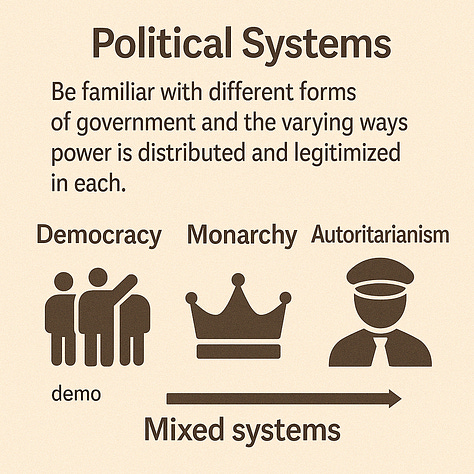









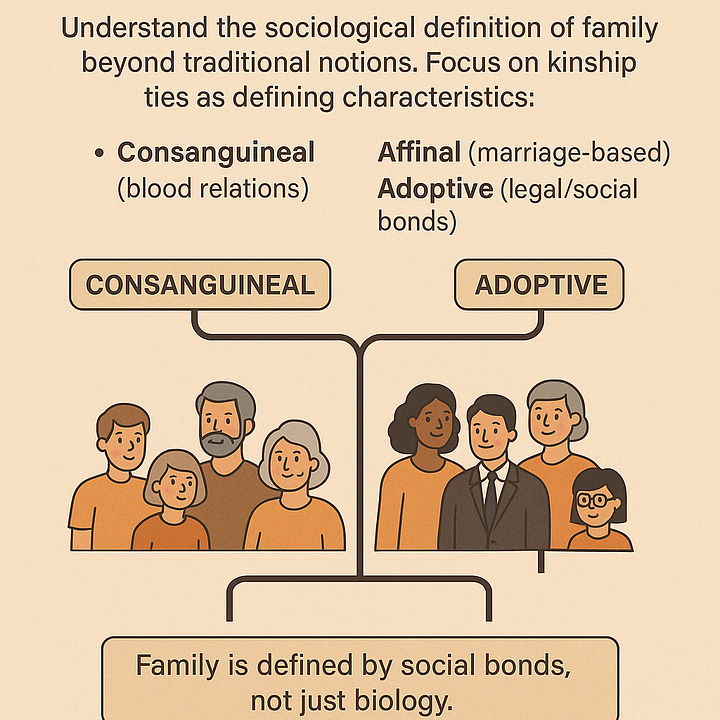


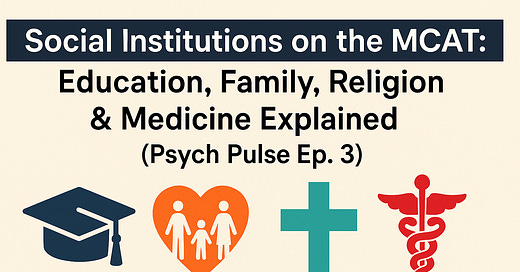







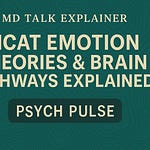
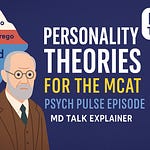


Share this post